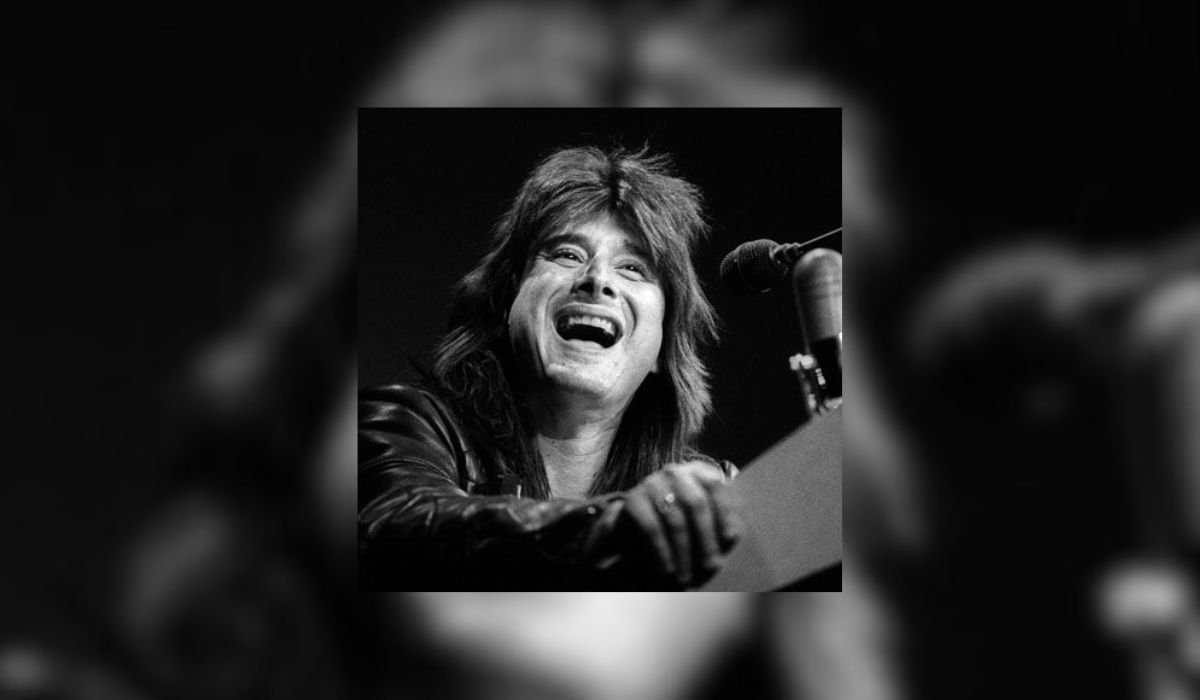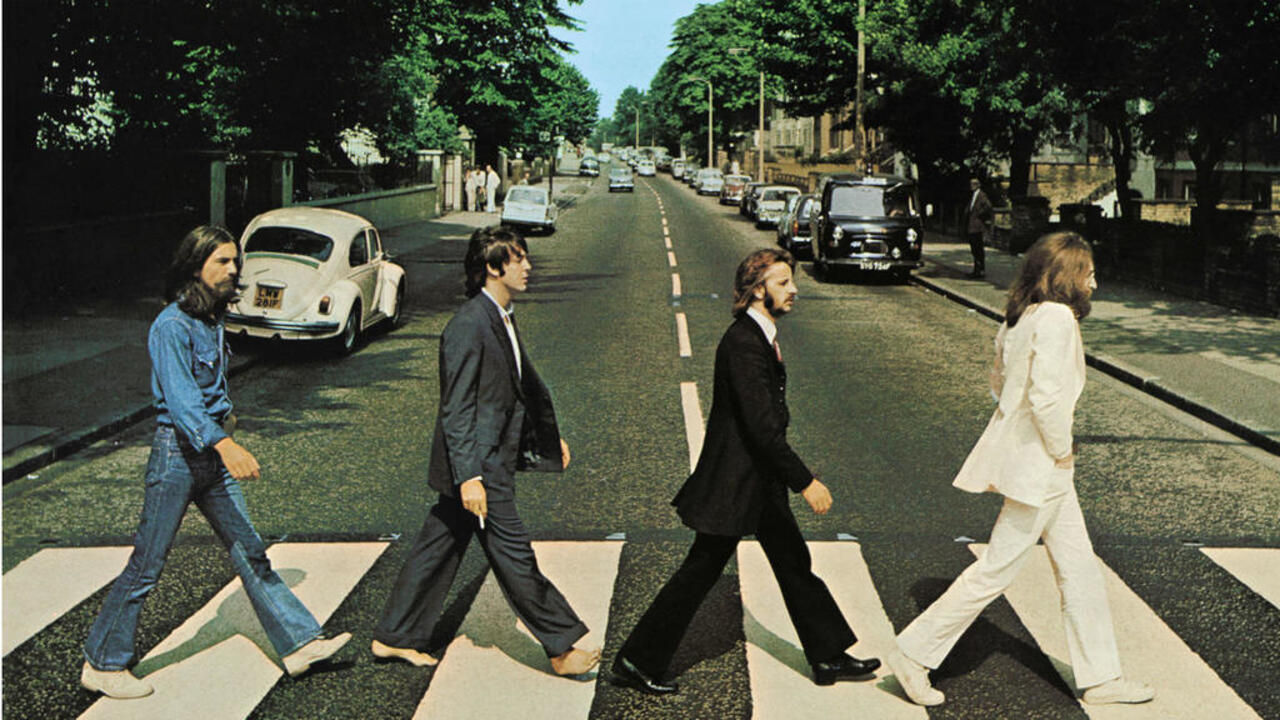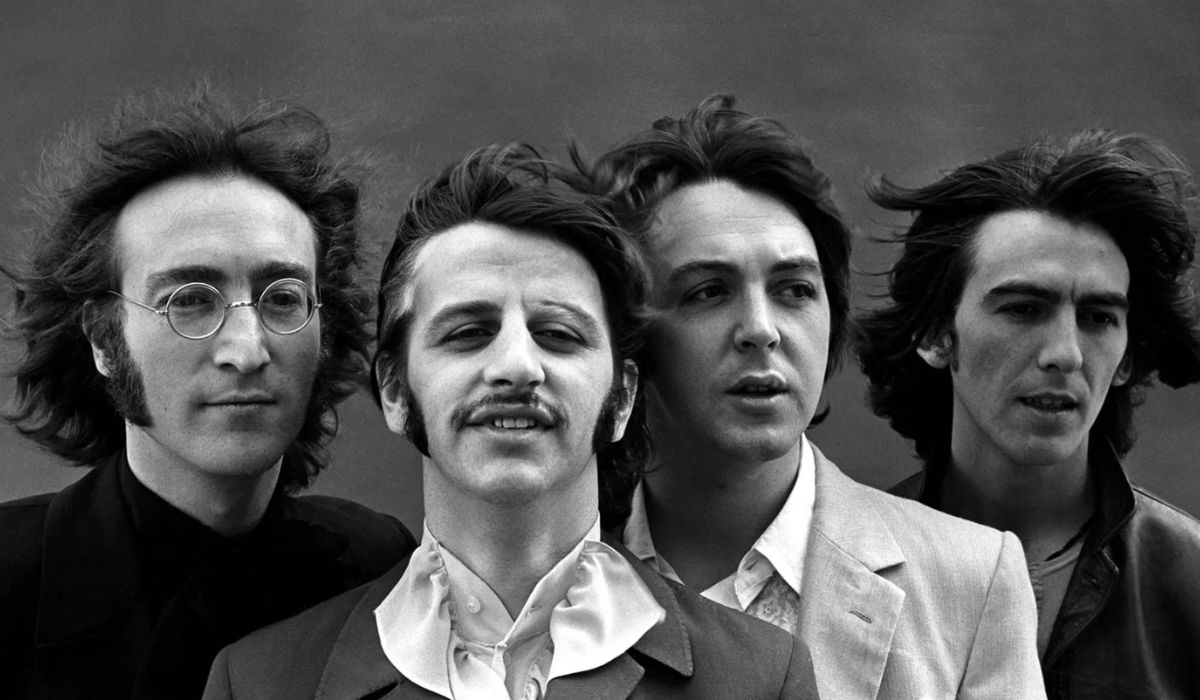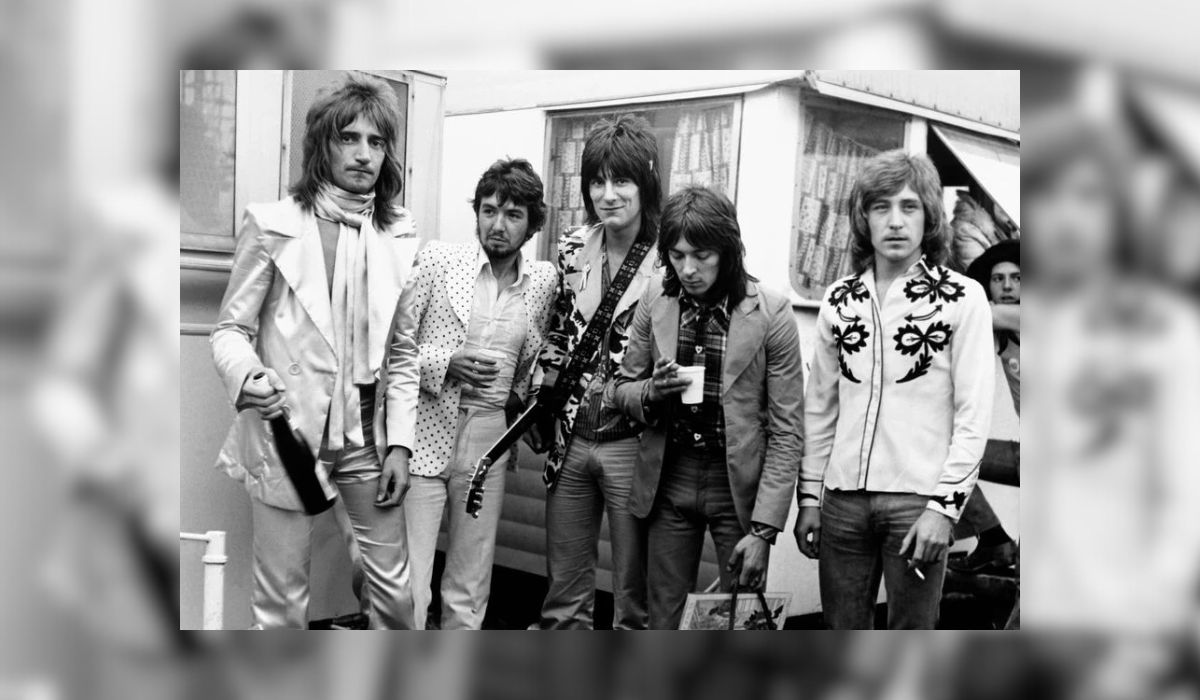Home>Instruments>Vocalist>Who Was The Vocalist For Pink Floyd
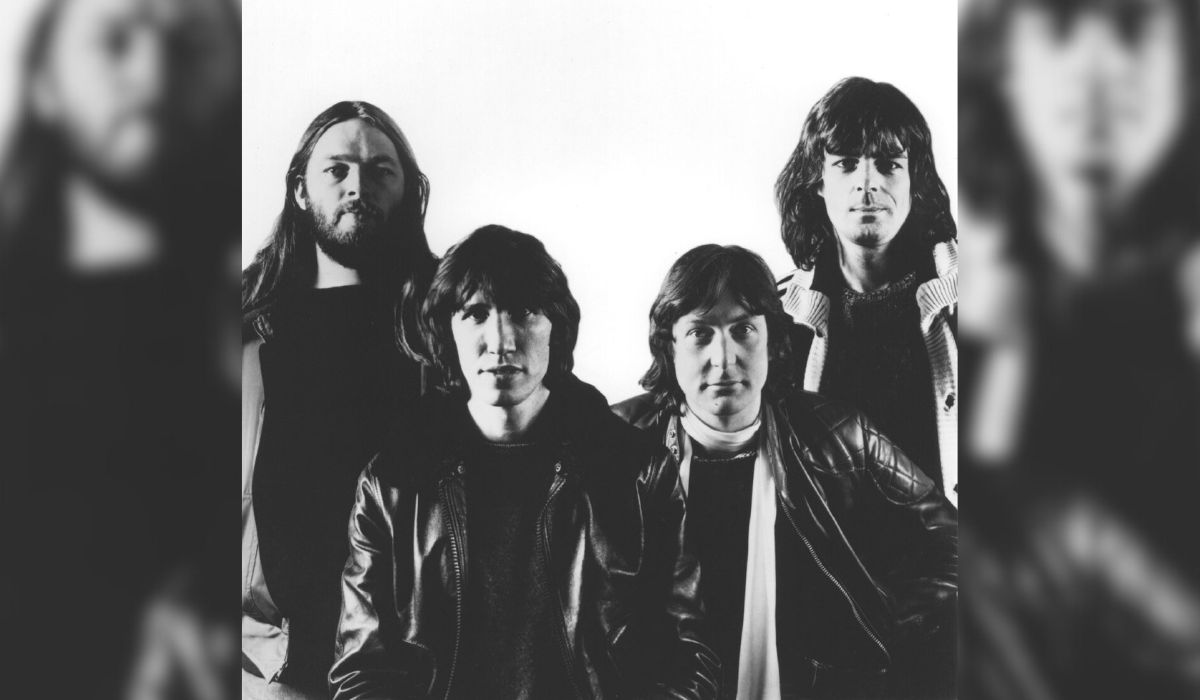

Vocalist
Who Was The Vocalist For Pink Floyd
Published: January 23, 2024
Discover the iconic vocalist who mesmerized audiences as part of the legendary band Pink Floyd. Learn more about the talented singer behind the iconic hits.
(Many of the links in this article redirect to a specific reviewed product. Your purchase of these products through affiliate links helps to generate commission for AudioLover.com, at no extra cost. Learn more)
Table of Contents
Introduction
Pink Floyd is undoubtedly one of the most influential and iconic rock bands of all time. Known for their progressive and psychedelic sound, they have captivated audiences for decades with their unique blend of music and thought-provoking lyrics.
At the heart of Pink Floyd’s sound was their vocalist, whose haunting melodies and powerful delivery helped shape the band’s signature sound. Throughout their career, Pink Floyd had several vocalists, each bringing their own style and energy to the band. In this article, we will delve into the world of Pink Floyd vocalists, exploring their contributions and impact on the band’s success.
From the band’s early years to their later evolution, we will uncover the story behind Pink Floyd’s vocalists, highlighting their individual journeys and the role they played in shaping the band’s artistic direction. Along the way, we will explore the departure of founding member, Syd Barrett, and the arrival of the renowned David Gilmour as the band’s new vocalist.
We will also discuss the vocal contributions of Roger Waters, the band’s bassist and songwriter, whose distinct voice and introspective lyrics became synonymous with Pink Floyd’s sound. Additionally, we will touch on the later years of Pink Floyd and the involvement of other vocalists who joined the band during this period.
By examining the vocalists who graced the stage with Pink Floyd, we hope to gain a deeper understanding of the band’s evolution and the impact these talented individuals had on their music and legacy. Join us on this journey as we uncover the fascinating story of Pink Floyd’s vocalists and their enduring influence on the world of rock music.
Early Years of Pink Floyd
The story of Pink Floyd begins in the early 1960s when a group of young musicians came together in London. Originally known as The Tea Set, the band consisted of Syd Barrett on guitar and vocals, Roger Waters on bass, Richard Wright on keyboards, and Nick Mason on drums.
During their early years, Pink Floyd played in the underground music scene, experimenting with different sounds and genres. Drawing influences from blues, jazz, and avant-garde music, the band slowly developed their own unique style. With Syd Barrett’s distinctive vocals and innovative guitar playing, Pink Floyd began to carve a niche for themselves in the burgeoning psychedelic rock movement.
In 1967, Pink Floyd released their debut album, “The Piper at the Gates of Dawn,” which showcased Barrett’s songwriting talent and the band’s experimental sound. Songs like “Astronomy Domine” and “Lucifer Sam” established the band as pioneers of the psychedelic rock genre.
However, the success of their early years was marked by the mental decline of Syd Barrett, who struggled with mental health issues exacerbated by heavy drug use. His erratic behavior and inability to perform live eventually led to his departure from the band in 1968.
Despite the setback, Pink Floyd carried on with the remaining members – Roger Waters, Richard Wright, and Nick Mason – at the helm. They faced the difficult task of finding a new vocalist to fill the void left by Barrett’s departure.
The early years of Pink Floyd set the stage for their future success and showcased the band’s willingness to push the boundaries of music. They established a reputation for their psychedelic sound and poetic lyrics, laying the foundation for the band’s later evolution and the vocal contributions of their future members.
The Founding Members
Pink Floyd was founded by a group of talented musicians who came together in the early 1960s. The original lineup consisted of four members who would go on to shape the band’s sound and legacy. These founding members were Syd Barrett, Roger Waters, Richard Wright, and Nick Mason.
Syd Barrett, the band’s original vocalist and guitarist, was known for his captivating stage presence and innovative guitar style. His songwriting skills and unique vocal delivery added a psychedelic and dreamlike quality to Pink Floyd’s early music. However, Barrett’s struggles with mental health led to his departure from the band in 1968.
Roger Waters, the band’s bassist, soon took on a more prominent role as a vocalist and songwriter. His deep, introspective lyrics and powerful vocal delivery became an integral part of Pink Floyd’s evolving sound. Waters’ emotional and thought-provoking lyrics would go on to define much of the band’s later work.
Richard Wright, the band’s keyboardist, also made significant vocal contributions. His soothing and ethereal voice harmonized beautifully with Barrett and later with David Gilmour. Wright’s keyboard skills and melodic vocals added depth and texture to Pink Floyd’s music.
Nick Mason, the band’s drummer, focused primarily on his instrumental skills but occasionally contributed backing vocals. As the only member to remain with the band throughout its entire existence, Mason’s steady rhythms provided the foundation for Pink Floyd’s music.
Together, these founding members created a sound that was innovative, experimental, and captivating. With their combined talents, they laid the groundwork for Pink Floyd’s future success and the vocal contributions of the band’s later members.
Evolution of Pink Floyd’s Sound
Pink Floyd’s sound went through a remarkable evolution over the course of their career, reflecting the band’s willingness to explore new musical territories and push the boundaries of rock music. From their early psychedelic rock roots to their later progressive and concept-driven albums, Pink Floyd continuously reinvented themselves, captivating audiences with their sonic experimentation.
In their early years, Pink Floyd embraced the psychedelic rock movement, blending elements of blues, jazz, and avant-garde music. Their debut album, “The Piper at the Gates of Dawn,” featured psychedelic-tinged songs with whimsical lyrics and intricate guitar solos, courtesy of Syd Barrett. This album set the tone for their psychedelic sound and established Pink Floyd as a force to be reckoned with.
After Barrett’s departure, Pink Floyd’s sound took a different direction. With the arrival of David Gilmour as a new vocalist and guitarist, the band embraced a more polished and progressive sound. Albums like “Meddle,” “The Dark Side of the Moon,” and “Wish You Were Here” showcased their ability to create atmospheric and introspective music. Gilmour’s soulful vocals and soaring guitar solos became defining features of Pink Floyd’s new sound.
During the 1970s, Pink Floyd’s sound became increasingly more ambitious and conceptually driven. With the release of “The Dark Side of the Moon” in 1973, they explored themes of mental health, greed, and the human experience. This album, along with subsequent concept albums like “Animals” and “The Wall,” solidified Pink Floyd’s reputation for creating immersive and thought-provoking music.
In their later years, Pink Floyd continued to experiment with their sound, incorporating elements of funk, electronic music, and even orchestral arrangements. Albums like “The Division Bell” and “The Endless River” showcased the band’s ability to evolve while still staying true to their distinctive sound.
The evolution of Pink Floyd’s sound reflects their commitment to artistic growth and their willingness to defy expectations. From their psychedelic beginnings to their iconic concept albums, Pink Floyd pushed the boundaries of rock music and left an indelible mark on the music industry.
Departure of Syd Barrett
The departure of Syd Barrett from Pink Floyd marked a significant turning point in the band’s history. Barrett, the band’s original vocalist and guitarist, had been instrumental in shaping their unique psychedelic sound. However, his struggles with mental health and drug abuse took a toll on his ability to perform and collaborate effectively with the band.
Barrett’s decline became evident during live performances, where he would often exhibit erratic behavior and struggle to remember lyrics or play his parts correctly. This led the other members of Pink Floyd to make the difficult decision to part ways with him in 1968.
The departure of Barrett was a defining moment for the band, as they had to redefine their sound and direction without his creative input. It marked the end of an era characterized by Barrett’s whimsical songwriting and experimental guitar playing.
However, the band members remained deeply connected to their former bandmate and continued to be influenced by his artistic spirit. Barrett’s impact on Pink Floyd’s legacy can be heard in their subsequent work, with elements of his psychedelic sound weaving their way into the band’s evolving style.
Despite Barrett’s departure, Pink Floyd carried on with Roger Waters, Richard Wright, and Nick Mason at the helm, and eventually recruited David Gilmour as Barrett’s replacement. This new lineup would go on to define Pink Floyd’s sound in the years to come, incorporating progressive and experimental elements that would set them apart from their peers.
Although Barrett’s time with Pink Floyd was short-lived, his influence on the band’s early sound and his artistic vision left an indelible mark on their music. His departure marked the beginning of a new chapter for Pink Floyd, one that would see them grow and evolve into the iconic band they are known as today.
New Vocalist: David Gilmour
When Syd Barrett left Pink Floyd, the band faced the daunting task of finding a replacement for their charismatic and talented vocalist. After auditioning several candidates, they discovered a remarkable talent in David Gilmour, a guitarist who would soon become their new vocalist as well.
Gilmour’s arrival marked a shift in Pink Floyd’s sound. His smooth and melancholic voice, combined with his exceptional guitar skills, brought a new dimension to the band’s music. Gilmour’s vocal range and emotive delivery perfectly complemented the introspective and atmospheric nature of Pink Floyd’s evolving sound.
With Gilmour on board, Pink Floyd embarked on a journey of artistic exploration. Their music became more refined and polished, retaining the psychedelic influences while incorporating progressive rock elements. Gilmour’s vocals were showcased on iconic albums like “Meddle,” “The Dark Side of the Moon,” and “Wish You Were Here.”
Gilmour’s vocal contributions were not limited to lead vocals alone. He also provided backing vocals, harmonizing with Roger Waters and Richard Wright, creating lush vocal arrangements that added depth and texture to Pink Floyd’s music.
One of the defining characteristics of Gilmour’s vocal style was his ability to convey a wide range of emotions. From the haunting and introspective vocals of “Time” to the yearning and vulnerability of “Wish You Were Here,” Gilmour’s voice became synonymous with the emotional core of Pink Floyd’s music.
Beyond his vocal talents, Gilmour’s guitar playing skillfully weaved melodic lines and breathtaking solos throughout Pink Floyd’s songs, becoming an integral part of their sound. His dynamic performances captivated audiences and solidified his status as one of the greatest guitarists in rock music.
David Gilmour’s contributions as a vocalist and guitarist helped propel Pink Floyd to new heights of success. His unique style and musicality added a fresh dimension to the band’s sound, solidifying their reputation as pioneers of progressive and atmospheric rock music.
Vocal Contributions of Roger Waters
While David Gilmour’s vocal prowess was a significant factor in Pink Floyd’s success, it was Roger Waters who emerged as the primary vocalist and lyricist for the band. Waters’ distinctive voice and thought-provoking lyrics played a crucial role in shaping Pink Floyd’s sound and identity.
Waters’ vocal style was characterized by its depth and emotional intensity. His rich, deep voice carried a sense of gravitas, perfectly suited to the introspective and often dark themes present in Pink Floyd’s music. Whether delivering haunting melodies or powerful anthems, Waters had a knack for evoking strong emotions in listeners.
As the band’s primary lyricist, Waters’ words became a powerful vehicle for storytelling. He tackled a range of subjects, from existentialism and political commentary to personal struggles and the human condition. His lyrics explored themes of alienation, disillusionment, and the search for meaning, resonating with audiences on a profound level.
Waters’ vocal contributions can be heard throughout Pink Floyd’s discography, but perhaps his most significant vocal performance was on the album “The Wall.” He took on the role of the protagonist, singing as the troubled character of Pink, whose journey through isolation and self-discovery forms the basis of the concept album.
Songs like “Comfortably Numb,” where Waters shares vocal duties with Gilmour, showcase the emotional depth and range of Waters’ voice. His delivery captures the sense of desperation and detachment embedded in the lyrics, leaving a lasting impact on listeners.
Waters’ vocal contributions extended beyond his work with Pink Floyd. In his solo career, he continued to use his voice to convey powerful messages, often addressing social and political issues with a sharp and unapologetic delivery.
Overall, Roger Waters’ vocal contributions left an indelible mark on Pink Floyd’s music. His unique voice, combined with his poignant and introspective lyrics, helped define the band’s sound and legacy. Waters’ ability to evoke raw emotions and spark deep reflection made him an integral part of Pink Floyd’s success and their enduring impact on rock music.
Later Years and Other Vocalists
As Pink Floyd entered their later years, there were shifts in their lineup and the utilization of various vocalists who contributed to the band’s sound. While David Gilmour and Roger Waters remained the primary vocalists, other members and guest musicians also lent their voices to Pink Floyd’s music.
One notable addition to Pink Floyd’s vocal repertoire was Richard Wright, the band’s keyboardist. Wright provided backing vocals and occasionally took on lead vocal duties. His soothing and melodic voice added a beautiful layer to songs such as “Time” and “Great Gig in the Sky” and showcased his versatile musical talent.
During live performances, Pink Floyd also enlisted the vocal talents of additional musicians. Clare Torry, for instance, joined the band as a guest vocalist and provided her soaring vocals for the haunting and wordless vocals on “The Great Gig in the Sky,” adding an ethereal quality to the song.
During the recording of the album “The Division Bell,” which was released in 1994, the band collaborated with backing vocalists Sam Brown, Durga McBroom, and Carol Kenyon. Their contributions added depth and harmonies to songs like “Keep Talking” and “High Hopes,” enhancing the sonic experience.
As Pink Floyd’s sound evolved, they also ventured into performing with a choir. The Welsh male voice choir, The Pontarddulais Male Choir, provided their powerful vocal harmonies on tracks such as “The Division Bell” and “Is There Anybody Out There?”. Their inclusion brought a grand and majestic quality to the music.
Furthermore, in their later years, Pink Floyd incorporated recorded vocals from spoken-word recordings and samples to add atmospheric elements to their compositions. This experimentation allowed the band to create unique musical landscapes, adding layers of depth to their sound.
While Gilmour and Waters remained the driving vocal forces, the contributions of other vocalists and musicians during Pink Floyd’s later years played an important role in enriching their sound. These collaborations allowed the band to continue pushing the boundaries of their music and further explore the vast sonic possibilities available to them.
Conclusion
Pink Floyd’s journey through the world of vocalists has been filled with innovation, exploration, and evolution. From the distinct and psychedelic vocals of Syd Barrett to the smooth and emotive delivery of David Gilmour, and the introspective and thought-provoking vocals of Roger Waters, each vocalist brought their unique talents and perspectives to the band.
The departure of Syd Barrett marked a turning point for Pink Floyd, propelling them towards their exploration of progressive rock and concept albums. David Gilmour’s arrival as the new vocalist expanded the band’s musical horizons while maintaining their signature sound. His vocals and guitar skills became iconic elements of the band’s music.
Roger Waters, in addition to his role as Pink Floyd’s bassist, found his voice as the primary lyricist and delivered powerful and soulful vocals that resonated with audiences worldwide. Waters’ lyrical themes and emotional delivery added depth and substance to Pink Floyd’s songs, solidifying their reputation as one of the most influential rock bands of all time.
Throughout their career, Pink Floyd also collaborated with other vocalists, including Richard Wright and guest musicians, bringing different tones and textures to their music. These collaborations showcased the band’s willingness to embrace new perspectives and constantly push the boundaries of their sound.
From their early psychedelic rock beginnings to their later concept-driven albums, Pink Floyd’s vocalists played a crucial role in shaping the band’s identity and leaving an indelible mark on rock music.
Through the rich vocal contributions of various members and guests, Pink Floyd created a musical legacy that captivated audiences and defied genre boundaries. Their innovative soundscapes, introspective lyrics, and powerful vocal performances continue to resonate with listeners, ensuring that their music will be cherished for generations to come.
In the realm of vocalists, Pink Floyd stands as a testament to the power of artistic collaboration, showcasing how the fusion of talent and individuality can create music that transcends time and continues to inspire and move audiences worldwide.




